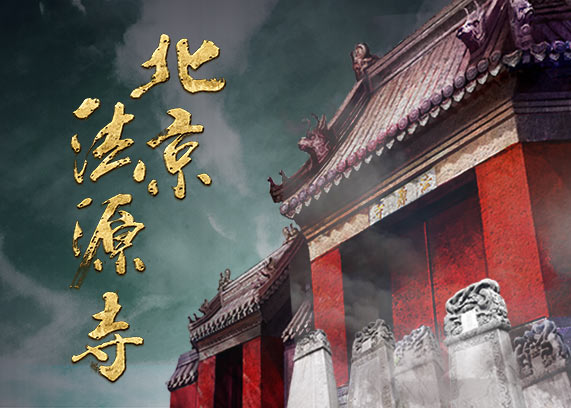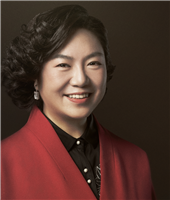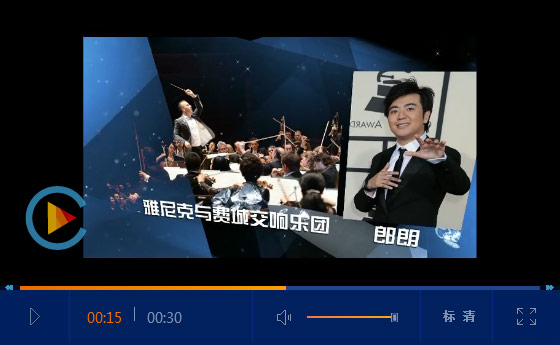Directed by Tian Qinxin, the drama is adapted from Mr. LI Ao’s first novel for the first time.
The drama Beijing Fayuan Temple portrays a story which occurs at the late Qing Dynasty with severe and lingering rottenness and crisis for over 100 years. The work integrates intricate elements like life and death, country and family, emperor and courtiers, China and foreign countries, strength and weakness, public and private, etc. This brutal and cruel history is presented through the court, populace and temple on the stage. As elites and people with lofty ideals, abundant emotions and generous aspirations strive to transform destinies of the country and families at the verge of China’s demise and destruction, where is the way out?
Mr. LI Ao depicts a series of historical events from 1888 to 1927, based on the activities of KANG Youwei, LIANG Qichao, TAN Sitong, Emperor Guangxu and Empress Dowager Cixi as the line of context. Prevention for the backward situation of late Qing Dynasty from being bullied through reforms is the central event and Fayuan Temple is the major location. The adaptation of the screenplay is based on the main stage time within 10 days from September 11th to 21st, 1898. It includes excerpts from the book, including Emperor Guangxu summoning KANG Youwei, ideas development of Constitutional Reform and Modernization, heroic manner of TAN Sitong and LIANG Qichao pursuing new solutions by learning from western countries, aiming to demonstrate the spiritual outlook of historical figures of this period.
The millennium temple serves as a millennium witness. Indeed the royal court of superiority may be comparable to the theatre of populace.
Creative
Chief Producer: WANG Ning
Executive Presenters: TIAN Qinxin, YIN Yixin
Chief Producers: GONG Baojiang, XU Xiaohui
Supervisors: BAI Xuefeng, CHENG Peng
Author: LI Ao
Playwright/Director: TIAN Qinxin
Deputy Director: SUN Xiaoming
Managing Producer: LI Dong
Deputy Managing Producer: WANG Pengpeng
Visual Director/Lighting Designer: XIAO Lihe
Setting Designer/Props Designer: WANG Chen
Costume/Hair Style Designer: CHEN Gufang
Music: JIANG Jinghong
Video Projection Designer: YU Hai
Sound Designer: HE Bin
Deputy Costume/Hair Style Designer: LIU Hongman
Costume Construction Supervisor: SU Zihang
Stage Manager: CHEN Long
Production Coordinator: Laoxiang
Performance Coordinators: XIAO Han, DING Baihui, ZHUANG Ying
Publicity Coordinators: LIU Mengni, WANG Yifei
Actor Coordinators: ZHANG Yan, LIU Hanzhong
Set Coordinator: GUO Tianqu
Poster Designer: CHEN Huixiong
The Lead: XI Meijuan, ZHOU Jie, JIA Yiping
The above information, including performance times, lineups, programmes and ticket prices, are all subject to change without prior notice and for reference only.
The drama Beijing Fayuan Temple was adapted from the novel of the same name by Mr. LI Ao. It revolves around the late Qing Dynasty, when patriotic reformists KANG Youwei, LIANG Qichao and TAN Sitong, launch “Hundred Days’ Reform” to find a way out for the country in the midst of severe rottenness and crisis after Emperor Guangxu calls on “Constitutional Reform and Modernization”.
This drama begins at Beijing Fayuan Temple, an ancient temple dating back to the Tang Dynasty. The three core Reformists KANG Youwei, LIANG Qichao and TAN Sitong reside near Fayuan Temple and often visit the temple. LIANG Qichao and TAN Sitong become sworn brothers. KANG Youwei finally is called in by Emperor Guangxu and comes up with reformist views and gains the trust of the emperor. When political reform is in full swing, Empress Dowager Cixi intervenes. On the eve of reform failure, Emperor Guangxu orders secretary YANG Rui to present his “secret imperial edict” to Reformists and ask them to helping the emperor. KANG Youwei thinks of YUAN Shikai holding the military power, and requests TAN Sitong to visit YUAN Shikai residing in Fahua Temple and discuss a strategy to rescue Emperor Guangxu. However, YUAN Shikai fails to undertake the mission. Instead, YUAN turns the reform into a coup. Empress Dowager Cixi dethrones Emperor Guangxu so that this 103-day reform comes to no avail. Empress Dowager Cixi takes political tutelage again. KANG Youwei and LIANG Qichao are forced to flee overseas. “Six Gentlemen” of the Hundred Days’ Reform, including TAN Sitong, are headed at Caishikou (an execution ground in Beijing).
In 1921, KANG Youwei and LIANG Qichao revisit Fayuan Temple. However, in Fayuan Temple, the originally master and disciple part company each in a separate way due to the different political views of “Royalist or Revolutionist”.
*Please purchase tickets through authorized channels to avoid counterfeiting. Before completing your purchase, please verify the performance date, time, venue, and seat number carefully. Performance tickets are time-sensitive and limited in availability. Once a transaction has been completed, tickets are non-exchangeable, non-refundable and cannot be reissued if lost. Please double-check all ticketing details and securely retain your physical ticket or electronic order. If you are unable to attend due to personal reasons, please make your own arrangements regarding the use of your tickets. We appreciate your understanding as any inconvenience caused.
*The cast, programme, or other performance details are subject to change and shall be based on the live performance. In the event of major adjustments - such as changes to the performance date or lead cast - please refer to the official announcements issued by the NCPA and follow the relevant procedures as instructed.
*The NCPA opens 90 minutes before performances, and 60 minutes before art education lectures and similar events. Auditorium entry begins 45 minutes before performances. For all performances and events, the Northern entrance serves as the sole public entrance. Please ensure that ticket scanning and security screening are completed prior to entry, and allow sufficient time to avoid delays.
*Tickets must be retained in their original, intact condition. Admission will be denied for tickets lacking a stub, or bearing any alterations, obscured information, or defacement. Each ticket is valid for a single entry on the date of the performance. For certain performances, presentation of original valid identification documents is required. Admission will be granted only when the ticket information corresponds with the presented identification.
*Recommended admission height: 1.2 meters and above. Special provisions may apply to certain performances or events, as indicated on the corresponding ticketing page.
*All attendees are required to undergo security screening upon entry. Smoking and open flames are strictly prohibited within the NCPA premises. Prohibited items include, but not limited to, firearms and replicas, controlled knives, flammable or explosive substances, toxic or hazardous materials, corrosive substances, and radioactive materials. Any prohibited items discovered will be handed over to public security authorities.
*For safety and hygiene reasons, the NCPA does not provide storage services for food, beverages, or similar items. The following items are not permitted inside the NCPA: food and drinks, flags & banners, electronic cigarettes, power banks exceeding 20000mAh, flowers, recording or photography equipment, and oversized luggage.
*Attendees are requested to address appropriately. Admissions will be denied to individuals who are improperly attired or under the influence of alcohol.
*If you are late, please wait quietly in the audience waiting area. Entry will be permitted under the guidance of ushers during appropriate intermissions or between movements, and you are requested to take the nearest available seat with minimal disturbance. For concerts consisting of a single piece - either for the entire performance or a complete half - late arrivals and audience who leave midway will not be admitted.
*All attendees are requested to observe proper performance etiquette. Please keep quiet and remain seated throughout the entire performance. Mobile phones should be turned off or set to silent mode, and calls should not be made in the auditorium. Photography, audio, or video recording of the performance is strictly prohibited without prior permission. The use of flashlights, including phone flashlights, is not allowed.
* After the performance, please exit the auditoriums in an orderly manner. Loitering is discouraged.





 This page provides performance information only.
This page provides performance information only.
